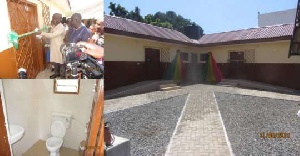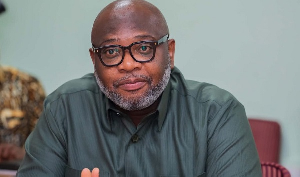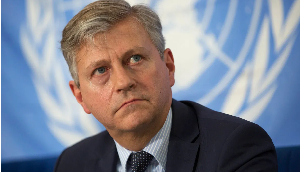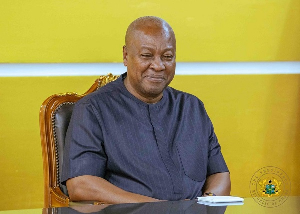The Accra Metropolitan Assembly (AMA) has inaugurated a toilet facility for the Independence Avenue Cluster of Schools in Accra to improve sanitation.
The facility was constructed under the Greater Accra Metropolitan Area Sanitation and Water Project (GAMA-SWP) with sponsorship from the World Bank.
This brings to 23 new institutional toilets in various schools under the jurisdiction of the AMA.
Mr Mohammed Adjei Sowah, the Accra Metropolitan Chief Executive (MCE), briefing the Ghana News Agency at the inauguration, said the initiative by GAMA-SWP to construct institutional and household toilets would help improve sanitation in the Greater Accra Region.
Provision of sanitation facilities was a key development intervention the Government had initiated, which was impacting positively on individuals, households and communities in the Metropolis, he said.
Mr Sowah called for an increase in investment towards sanitation to accelerate President Nana Addo Dankwa Akufo-Addo’s vision of making Accra the cleanest city.
He blamed the negative attitudes of some of the people towards waste management, which, he said, was the cause of flooding and cholera outbreak in some parts of Accra.
However, he said, the adoption of the latest technology to deal with environmental sanitation by the AMA had improved the situation resulting in no cholera case being recorded in the Metropolis since 2016.
“We are changing the story of Accra to become a beautiful city, such as greening of all available spaces and pursuing the good cause with aggressiveness to ensure that the President’s dream of making the city clean becomes a reality,” the AMA Chief Executive said.
Mr George Asiedu, the GAMA-SWP National Coordinator and Consultant, said under the project, 260 institutional toilets were to be constructed, out of which 105 had been completed in 11 selected municipalities in Accra, covering 82 schools.
He said the key challenge of the school toilet facility was the payment of water bills and the dislodging of feacal waste and called on the Ghana Education Service (GES), the Parent Teacher Associations and other stakeholders to provide supplementary funding to sustain the project.
Mr Asiedu suggested that the best way to ensure the sustainability of the facilities was for each student to contribute GH¢5.00 a month for the maintenance of the toilets to prolong their life-span for 15 years and beyond.
Mrs Margaret Frimpong-Kore, the Accra Metropolitan Director of the GES, expressed gratitude to the AMA and GAMA-SWP for providing the facility.
Regional News of Friday, 5 October 2018
Source: ghananewsagency.org













